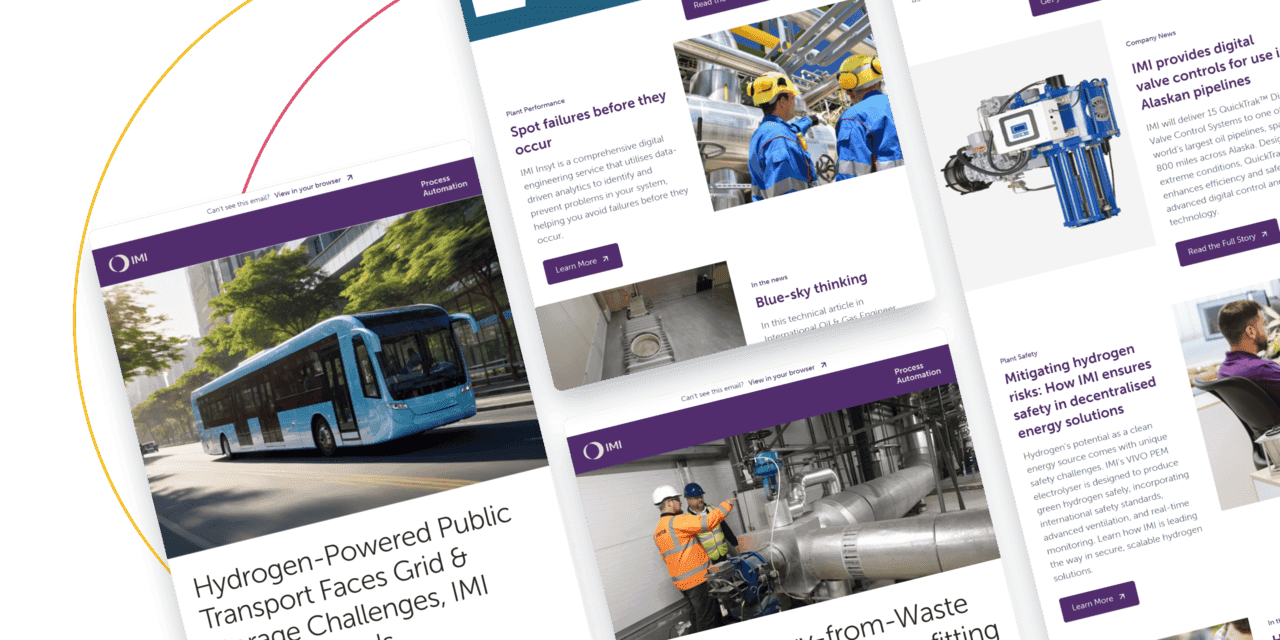Organization Sectors
Organization Sectors
Stay up to date on all the latest Process Automation news
© 2025 IMI plc, All Rights Reserved
© 2025 IMI plc, All Rights Reserved

COMPANY NEWS

Written By IMI Publications
April 15, 2024
Solenoid valves are necessary for efficient process automation, but inappropriate selection, misuse, fluid contamination, or inadequate maintenance can lead to failure, often without warning. If solenoids malfunction, they normally fail in a ‘safe mode’, placing the system they control into a safe state, but these unscheduled shutdowns can still have secondary implications. More rarely, the potential exists for solenoids to fail in a dangerous state, which prevents the automated control process from placing the system into a safe state.
Recently, multiple explosions at an aging refinery in China triggered the plant operator to overhaul their equipment standards and SIL requirements. A root cause investigation identified that alongside poor adherence to safety procedures, the exposure of critical systems to the failure of a single solenoid valve had contributed to the severity of the explosions.
These explosions put employees in unnecessary danger, damaged equipment and led to increased downtime during peak periods. As a result, there were several new regulations, which impacted the SIL requirement of the final control elements. These new regulations stipulated a greater level of redundancy from the solenoids.
IMI was asked to develop a new solution that would make it easier to comply with enhanced safety regulation. The refinery team requested a solution that must comply with the enhanced safety requirements (redundancy), mitigate against the risk of safe failures/spurious trips, simplify field servicing, and also help to ensure that operators adhered to the revised safety procedures. Any proposed solution needed to be effective, competitive, and delivered quickly.
IMI’s engineers immediately set to work on the project, ring-fencing a cross-functional team with senior support for critical decisions to develop a new redundant valve manifold (RVM) design.
IMI had a range of redundant valve manifold solutions including variants that protect against both safe and dangerous failures using a two-out-of-three (2oo3) arrangement. This ‘voting’ logic ensures that any single solenoid can fail in either condition (safe or dangerous) without disrupting the process or the safety function. This provides a higher SIL rating across the full manifold, rather than relying on the performance of individual components to ensure safe plant operation.

This solution needed to be modified to meet size and weight constraints and additional mechanical devices to avoid users overriding the design function. By adding in bypass valves with mechanical locks, site teams can remove solenoids for repairs without impacting product throughput, vital to maintain a plants uptime.
IMI’s new proposed design allowed flow control to continue unimpeded should one of the site’s solenoid valves fail. This level of redundancy would also avoid the plant having to send engineers to manually close a line in the event of component failure.
It took just four weeks for the project team to design, test and finalise a new RVM line for the end user – considerably quicker than other projects of this type.
This rapid response showcases IMI’s approach to complex briefs and the company’s ability to dedicate resources when customers request a quick turnaround. Not only did IMI deliver an effective solution in good time, but the team was also able to use 70% less raw material during production, making the new RVM 20kg lighter.
Weight was an important factor for the refinery. The solution needed to be lighter than before so it could be easily mounted on the actuators without the need for supporting stands, which would have increased costs and made it more difficult to retrofit at other sites.
The new RVM solution has been highly successful, with plant managers in China reporting no new safety incidents since installation. The solution has also been adopted by other plants in China and based on this work, IMI is now in conversation with plant managers in other markets, highlighting the product’s applicability in different downstream refineries.
Projects form the basis for much of IMI’s work across the world. However, the company is committed to approaching each on its own terms, with teams focused solely on the customer’s needs. This is done in the belief that good engineering is always bespoke and never prescribed.
Stay up to date on all the latest news and articles from IMI.

Stay up to date on all the latest news and articles from IMI.


Stay up to date on all the latest news and articles from IMI.
